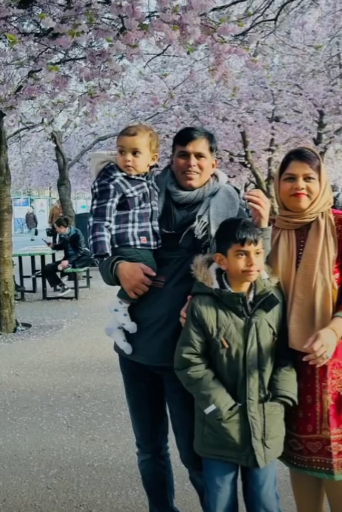Study in HUNGARY
Looking Back-2005
With Dean, Agri Faculty of Szent Istvan University in Hungary.

Looking Back-2005
With Vice Dean, Agri Faculty of Szent Istvan University in Hungary.

Study in HUNGARY
Bridging Central and Eastern Europe, Hungary combines many of the attractions of both regions – but above all prides itself on having its own distinctive identity. This pride is not without foundation. Though relatively small, Hungary has much to offer visitors, from the architectural and cultural delights of capital city Budapest, to vineyard-covered hills and historic castles. With so many natural and manmade attractions, combined with relatively low living costs and a strong focus on internationalization, it seems likely that Hungary’s popularity as a study destination will continue to grow. Choose to study in Hungary now, and you could be at the leading edge of that trend.
Hungary, Hungarian Magyarország, landlocked country of central Europe. The capital is Budapest.

Looking back Success on 2003.
Revin Sarker, Rangpur Bangladesh.
1 st Bangladeshi student at IBS College in Hungary, Now Hungarian Citizen

Looking back Success on 2004.
JubayervAhmed Bangladesh.
1 st Bangladeshi student at KJU College in Hungary, Now Swidish Citizen

Facts
| Also Known As: | Magyarország • Republic of Hungary • Magyar Köztársaság |
|---|---|
| Head Of Government : | Prime Minister: Viktor Orbán |
| Capital : | Budapest |
| Population: | (2021 est.) 9,672,000 |
| Form Of Government : | unitary multiparty republic with one legislative house (National Assembly |
| Official Language : | Hungarian |
| Form Of Government : | unitary multiparty republic with one legislative house (National Assembly |
| Official Religion : | none |
| Official Name : | Magyarország |
7 tips to plan your studies
1. Get familiar with what we offer
Take the first step towards planning your studies and get familiar with our higher education’s system, our degree programmes to find what suits you the best and browse universities throughout the country to get a basic overview about how and where you could obtain your degree exactly.
2. Choose your study programme
Our Study Finder database can help you with finding the programs you like by browsing through study fields, institutions, cities, and levels of study. At the moment this database provides information on 500+ programmes in English, French, German and several other languages.
3. Contact the chosen institution
If you managed to choose your future institution to visit the university’s website to get more detailed information about the university itself and the course you want to apply for. Contact your institution to know what’s next, ask for details about deadlines, and set the appointment for a Skype interview if needed by the school.
4. Keep up with the deadlines
Institutions may have their own specific deadlines for the application period that is why contacting your school is essential. Application timeline can help you with general timing but it does not give you the deadlines of each institution
5. Read about funding options
If you will fund your studies by yourself it’s worth considering from the start how you will finance the tuition fees for years. As scholarships can’t be awarded to all applicants you may need to cover living expenses and your university’s tuition fees on your own. Fortunately, in Hungary, we offer several funding options for self-financed students to fund their university years. See Tuition fees and Funding options to help you planning your budget consequently.
6. Prepare your application
Generally, you need to have some basic documents such as a language proficiency test or your obtained diplomas to apply for the chosen course. See Entry and admission requirements to know what should be submitted. Please note that we listed these requirements in general so the chosen institution’s expectations may vary.
7. Good luck!
Kéz és lábtörést! (Break a leg! in English) is the Hungarian way to wish someone good luck. If you apply for the Autumn semester you have to get a notification by July, in case you wish to start your studies in the Spring semester from February you will get your final results until the end of January. Good luck for your future studies here in Hungary!
How much does it cost to Study in HUNGARY?
| S.no | Study Program | Average annual free | Course Duration |
|---|---|---|---|
| 1 | Undergraduate program | 2500-6500 (Euro) | 3 Years |
| 2 | Postgraduate program | 2500-45000 (Euro ) | 2 Years |
| 3 | Doctoral ( PhD) | Free | 4 Years |
| 4 | MBA | 3000- 4500 | 2 Years |
Student visa requirements in HUNGARY
- Recent passport size photo
- Passport
- SOP explaining why selected Hungary and the course.
- Proof of language proficiency (MOI, IELTS, PTE, Duo lingo)
- 10th & 12th certificate
- Degree certificate
- Bonafide certificate- for current studying students
- Individual score cards.
- Transcript of records
- Work experience letters (if)
- Other achievement certificates (if)
- Medical certificate

Cost of studying in HUNGARY
Living cost is very affordable and student can afford while they studying. Students in Hungary should be able to live with approximately starts from €300 to €500 per month, allowing enough for not only rent but also for public transport, health insurance, study materials, and a few nights out on the town. But in main city such as capital Budapest living cost is little bit higher than other cities.
Why study in HUNGARY
For higher Study in Hungary is sure one of the best decisions for any international students because as the education system and other factors to complete a higher degree for an international student are too good and student friendly in Hungary. Living cost, transport and meal charge, medical costs, insurance costs- everything is bearable by students. Besides, the visa success rate of Hungary now a day is so amazing. Hungary also offers a lively and welcoming culture, a fascinating history,
and beautiful cities. All these things attracted students to choose Hungary as their future Study Station.
Plan your studies
If you are considering getting your degree in Hungary, this article will guide you through some tips that will give you an insight into the application process from searching and finding your university to submitting your documents. By choosing one of the Hungarian higher education institutions you must be aware that you will be receiving a high-quality education for a fair price. Living in Hungary is one thing, but studying in Hungary might change your life! At the end of this journey, you will be smarter, wiser, full of new experiences, and a proud person holding a European degree in your hands.
Accommodation
There are several kinds of accommodation alternatives in Hungary but the cheapest one is usually a dormitory belonging to the students’ homes section of the university you attend. One advantage is that it is cheap, you will always be surrounded by friends and great communities are often created by living together.
On the other hand, renting an apartment is also a feasible option if you prefer privacy. This way, you can get your personal insight of how Hungarians live. Cost can be very different depending on living in or outside of the capital: HUF 70,000–150,000 or HUF 120,000–200,000 in Budapest a month plus overheads. The landlords usually require you to pay a deposit in advance, which usually equals a minimum of 2 months’ rental fee (this will be paid back when you move out.)
If you need help, contact your international co-ordinator or mentor at your university, who will guide you in the right direction. There are usually dedicated Facebook pages. Some students find agencies useful in the process.
Wherever you live, the most important thing is to find a place where you can study comfortably and it is a plus if you can share it with your new friends.
Scholarships for HUNGARY
Stipendium Hungaricum Scholarship Programme
Thousands of students from all around the world apply for higher educational studies in Hungary each year. The number of Stipendium Hungaricum applicants is continuously increasing as well as the number of available scholarship places. In the 2019/2020 round of applications more than 4500 scholarships were awarded and currently we have over 7000 students studying here through the Stipendium Hungaricum scholarship.
In the academic year 2020/2021 more than 5000 students can begin their studies in Hungary in the framework of the Stipendium Hungaricum Programme.
The programme is based on bilateral educational cooperation agreements signed between the Ministries responsible for education in the sending countries/territories and Hungary or between higher education institutions. Currently nearly 70 Sending Partners are engaged in the programme throughout 5 different continents.
Hungary student visa process
- Accept an offer to study at a Hungarian university
- Contact your nearest Hungary embassy or consulate to arrange for your type D visa appointment (no more than three months before your program starts)
- At the embassy or consulate provide a completed application form, passport, biometrics and application fee of €90
- Provide any necessary proof of your educational background and finances
- Wait up to a month, and receive a decision on your visa
- Travel to Hungary and collect your residence permit within 30 days Requirements for a Hungary student.
Hungary student visa processing time
The processing of a Hungarian student visa usually takes about a month but could take up to 60 days so it’s important you apply as soon as you can.
You can apply for your visa up to six months before you travel, provided you have your university offer, so don’t leave it until the last minute.
If you need to book an appointment, you may need to give up to 6 weeks because appointment times can be limited.
Hungary visas for student dependents
Once you are settled in Hungary, you may be able to start the process for your spouse or children to come to Hungary and live with you. The main requirement for this is that you can support them financially and they are able to come to Hungary under family reunification.
